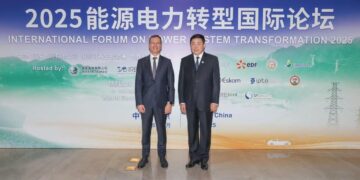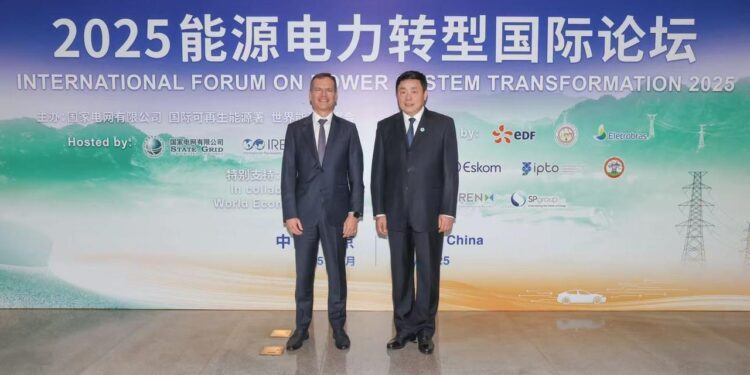Greece ranks among the top nations globally for the integration of Renewable Energy Sources (RES) in electricity generation, as highlighted by Manos Manousakis, President and CEO of IPTO, during his address at the International Forum on Power System Transformation 2025 in Beijing.
In discussions with industry leaders, including operators, producers, and technology companies, he noted that over the past eight years, Greece has undergone a significant transformation in its energy landscape, with a remarkable international standing in renewable performance. RES, particularly solar and wind energy, now meets 50% of the country’s demand, up from about 20% in 2017, with ambitions to reach 80% by 2030.
Discussing IPTO’s role in advancing Greece’s green transition, he revealed that since his tenure began in 2017, the organization has invested €3.1 billion in crucial energy infrastructure, greatly enhancing the capacity for integrating more RES. He highlighted IPTO’s mission to connect the island and mainland electricity grids, reporting that eight submarine interconnections have been successfully completed, with new projects set to launch, all part of a €6.3 billion ten-year development plan for the Greek electricity transmission system.
International Interconnections
Manousakis also addressed the international interconnections that IPTO is pursuing in partnership with neighboring operators, including projects like the Greece-Cyprus-Israel Great Sea Interconnector, Greece-Italy GRITA 2, Greece-Saudi Arabia Saudi Greek Interconnection, and the Greece-Germany Green Aegean Interconnector. He highlighted the significance of the Greece-Egypt GREGY interconnection, developed by the Copelouzos group, which IPTO is interested in investing in.
He underscored that these initiatives capitalize on Greece’s advantageous geostrategic location and its abundant RES potential, enhancing Europe’s energy diversification and resilience. “We are advancing the establishment of energy corridors in the European electricity network that will bolster the security and stability of our national systems as the share of RES in electricity generation grows,” he concluded.

















